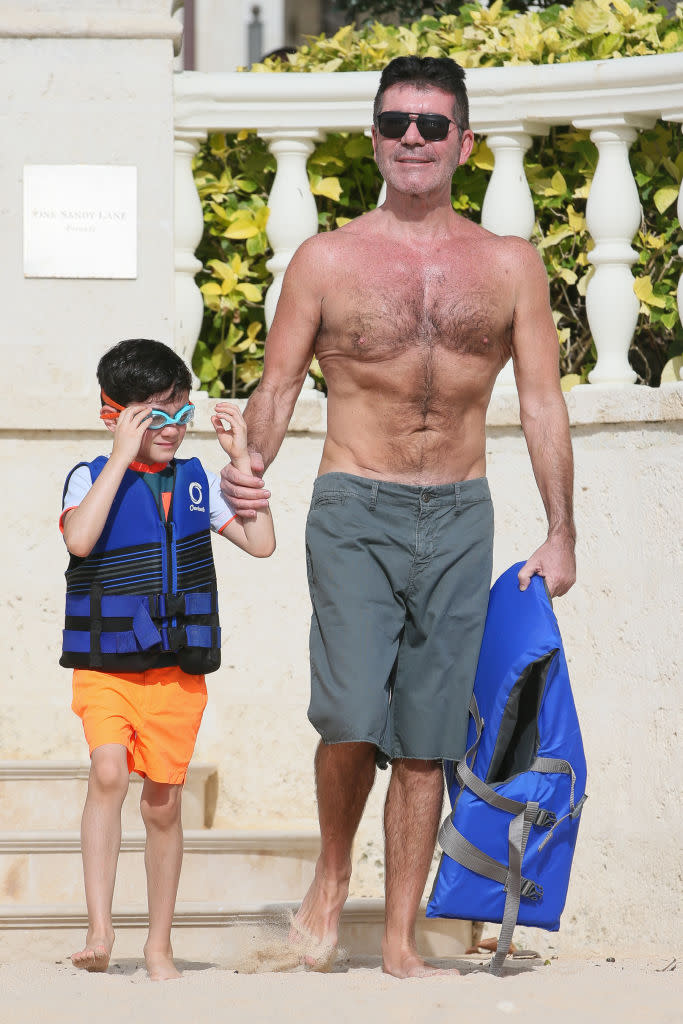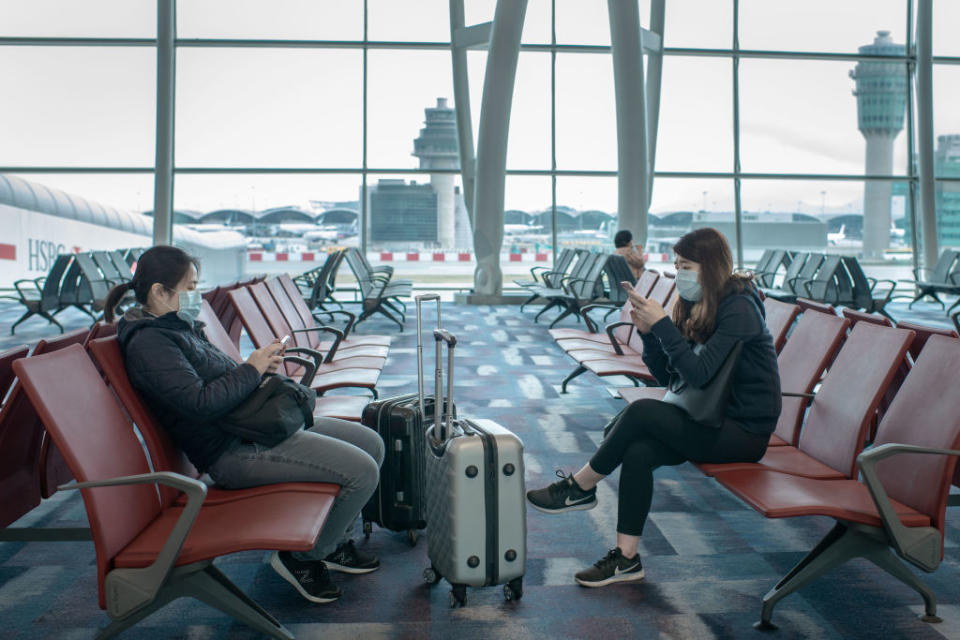Simon Cowell will make son Eric wear a mask on Disneyland trip amid coronavirus fears

Simon Cowell is so concerned about the threat of coronavirus that he and his son, Eric, will wear surgical masks on an upcoming holiday.
The TV judge, 60, admitted that he is “terrified” about the illness and will “100%” encourage his six-year-old Eric to cover up with a protective mask when they travel to Paris.
“I am terrified about it,” he told talkRADIO yesterday, adding: “I have worn masks for ages. When I cycle around town, I wear a mask.
“But I am taking Eric to Disneyland Paris next weekend and I’m almost certain that when we’re on the train we will be 100% be wearing masks.”
Read more: London Fashion Week kicks off amid coronavirus disruption
He went on to add that he will also be armed with “lots of hand sanitiser” on the trip because it “really scares him.”
When radio host Dan Wootton admitted the scare had put him off travelling to China, Cowell responded that he “wouldn’t want to be on a cruise ship right now,” in reference to the Princess Diamond cruise ship docked in Japan.
Cowell went on to admit that he has seen movies about this sort of virus outbreak and believes we’re seeing it “in front of our eyes right now.
“It does worry me,” he added.
Read more: How to stay calm amid the coronavirus Covid-19 outbreak

Coronavirus current situation
The pneumonia-like strain of coronavirus, which has since been named Covid-19, was first detected in China at the end of 2019.
The World Health Organisation then declared a Public Health Emergency in January.
Since the previously unknown strain emerged at a seafood and live animal market in the Chinese city Wuhan at the end of last year, it has crossed national borders into at least 27 other countries.
Authorities have confirmed more than 73,336 cases, of which 72,438 are in mainland China, according to John Hopkins University.
The death toll currently stands at 1,874.
Nine people in the UK have so far been treated for the virus, eight of whom have since been discharged from hospital after twice testing negative.
Symptoms include fever, coughs, runny nose, chest tightness, shortness of breath, headaches and chills.
Read more: How is the coronavirus Covid-19 diagnosed?
How masks help prevent the spread of a virus
Chinese authorities previously confirmed the virus can spread from person-to-person via sneezing, coughing or shaking contaminated hands.
A mask that blocks droplets carrying the virus from entering the nose or mouth may therefore help, to an extent.
Surgical masks, worn by doctors during operations, are designed to block liquid droplets that may “splash” into their face, the New Scientist reported.
They do not, however, fully seal the nose and mouth or generally cover the eyes.
Yahoo UK has previously reported how cold and flu viruses can enter the body via the eyes.
Not keeping a mask on for long enough could also be a problem.
Professor Jonathan Ball, from the University of Nottingham, told the BBC “it's quite a challenge to keep a mask on for prolonged periods of time”.
“Research shows compliance with these recommended behaviours reduces over time when wearing face masks for prolonged periods,” Dr Jake Dunning, head of emerging infections and zoonoses at Public Health England, added.
And mask-wearers could still get infected if their hands become contaminated and they unwittingly infect themselves after removing their mask off.

Read more: When is coronavirus Covid-19 expected to 'peak'?
Nevertheless, the CDC recommends those with coronavirus “wear a face mask when you are in the same room with other people and when you visit a healthcare provider.
“If you cannot wear a face mask, the people who live with you should wear one while they are in the same room with you.”
To prevent infection, the World Health Organisation also advises cleaning hands regularly with soap and water or sanitiser.
People should also cover their nose and mouth when sneezing or coughing, avoid those with flu-like symptoms, thoroughly cook meat and eggs, and stay away from animals.
For more information about how to put on and wear a mask click here.


